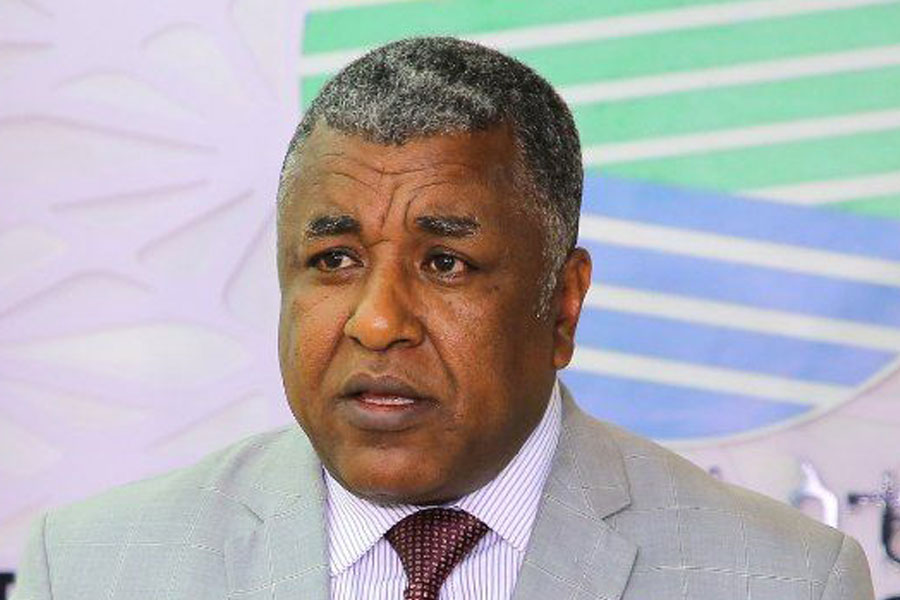
Fortune News | Nov 03,2024
Dagim Yosef, 40, a father of two and expecting a third child soon, has never encountered such shortages for lubricants in the seven years he has been in the industrial lubricant business.
He operates from a tiny six-square-metre retail space around German Square, next to a heavy-truck maintenance garage. Escalating prices have accompanied the shortage in the supply of motor oils, greases and other lubricants to such an extent that he has found it challenging to stay in business.
In the last two months, lubrication products from OiLibya and Yetebaberut Beherawi Petroleum (YBP), suppliers and importers, are still found in the market, while products from Total Ethiopia and National Oil Company (NOC) have disappeared altogether, according to him.
Illustrating the price differences found among oils at distributors, Dagim says that the current selling price of OiLibya product for a 200lt differential-oil sold in barrels has spiked to 17,500 Br, an increase of 23pc. And a 25-litre Deomax engine oil has increased to 2,500 Br from 2,000 Br.
Price escalations by other companies such as Yetebaberut Beherawi Petroleum are also within the same range, according to him.
“I sell to my customers adding premiums of 50 Br to 100 Br on containers that hold one litre to 20lt; for bulk oil sold from barrels, I charge premiums of 10 Br a litre,” he said.
There are various types of lubricants imported including petrol motor oils, diesel engine oils, gear oils, automatic transmission and brake fluids, hydraulic and industrial gear oils as well as greases in different brands and volumes.
At one of the NOC fuel stations around the Bulgaria neighbourhood, Fortuneobserved the shortage of engine oils as drivers who stop by looking for the product were being turned away.
“We are receiving the motor oil in quotas from the company, who have cut down the supply quantity they used to sell to us,” said the salesperson who declined to give her name.
The prevailing foreign currency crunch and dwindling supply are driving up prices of motor oils, greases and other industrial lubricants dramatically across the country
The salesperson showed Fortunerecent prices of Havoline Formula regular motor oils that had prices of 115 Br for one-litre and 474.7 Br for four-litre containers. Similarly, the price for Delo Gold Ultra diesel engine oil stands at 133 Br a litre; 497.2 Br for four litres; and 564.62 for five litres.
“We sell the products according to prices set by the Ministry of Trade & Industry,” she said. “The problem is only a shortage of supply.”
One of Total Ethiopia’s fuel stations around Qera Mosque has been experiencing shortages of the products for the past five to six months, according to attendants who add that the company has reduced the quota the station receives.
“There is a high demand for motor oils, but we’re not receiving sufficient supplies,” she said.
Dawit Habtemariam, a young taxi driver in his twenties, fills up his vehicle with Havoline Formula oil every two months or after driving 5,000Km.
“I used to pay 400 Br to 500 Br for a four-litre Havoline formula at the fuel stations just two months ago,” he said. “But with the shortage, I started to pay up to 900 Br for the same volume from retailers around Qera.”
Even the Total bulk engine oils, which used to fetch 70 Br to 90 Br a litre at some gas stations, have now increased by at least 30 Br a litre, according to Dawit.
Fortuneobtained a price quotation from one of the distributors of lubricants around Gofa by requesting a proforma invoice.
“You have to buy it within two days,” said the clerk issuing the proforma for the three products that were available from a long list Fortune presented. “The products sell out very fast.”
A senior marketing executive at one of the four big fuel retailers says that due to the very severe shortage in hard currency, the oil companies could not import adequate supply of the products into the country.
“This is especially true of motor oil where demand is typically high,” he said. “Roughly 70pc of all imported lubricants is motor oil, and this segment is growing by 10pc each year.”
The four major big oil importing companies: NOC, Total Ethiopia, YBP and OiLibya supply around 48 million litres of lubricants annually.
The overall demand for lubricants in 2018 was around 48 million litres, showing a three percent growth from 2017. However, the import of lubricants decreased from 4.2 million litres a month in January 2018 to 2.7 million litres in January of this year, showing a 35pc fall.
Currently, there are around 975,000 vehicles in Ethiopia, a number that is growing at an annual rate of 10pc. Around 60pc of these vehicles are registered in Addis Abeba.
With lubricant prices set by the Ministry of Trade & Industry, the companies are allowed to add up to 32pc over their import costs as premium and sell it to fuel stations. The stations, too, can add up to 17pc premium for their retail customers, according to the marketing executive.
The last time the Ministry set selling margins was five years ago.
“With our import cost increasing and our profit margin standing stagnant, we are hard-pressed to survive,” said this industry insider. “We have been told by the Ministry to submit our import costs for revision, but still no response from the Ministry has come.”
But Kassahun Mulat, director for market, factory inspection & regulation at the Ministry of Trade & Industry, argues that the 32pc profit margin has been re-approved by the Council of Ministers this year.
“The adjustment is made quarterly with the utmost care as it is a sensitive thing that would create overall inflation,” said Kassahun. “The revision work will take two months and would be practical after they submit their international prices to the office.”
The current crisis boils down to the ongoing foreign exchange crunch, according to Tadesse Girma, secretary general of the Ethiopian Oil Companies Association, formed in August 2017 to fight challenges the industry faces.
Serkalem GebreKirstos (PhD), an expert in the petroleum industry for more than a decade and a former manager at Dalol Oil, stresses that it is very devastating that the government cannot manage the sector where 65pc to 70pc of the nation’s foreign currency is spent.
Basically, it is a problem of the regulatory body, the Ministry of Trade & Industry, that has failed to implement the rules. There is also illegal trading from neighbouring countries that destabilises the market, according to Serkalem.The country imports around 60 million tonnes of oil annually.
“It needs a national solution that will engage all stakeholders and professionals to debate and find a way out,” he concluded.
However, Dagim, the oil retailer, seems pessimistic with the situation of the foreign currency and is discouraged about the oil business.
He envisions to expand his work to retailing automobile and truck spare parts. He has already started to sell limited spare parts in his shop, supplying heavy trucks specifically, and is hoping to attract more customers from both lines of his business.
PUBLISHED ON
Jun 22,2019 [ VOL
20 , NO
999]

Fortune News | Nov 03,2024
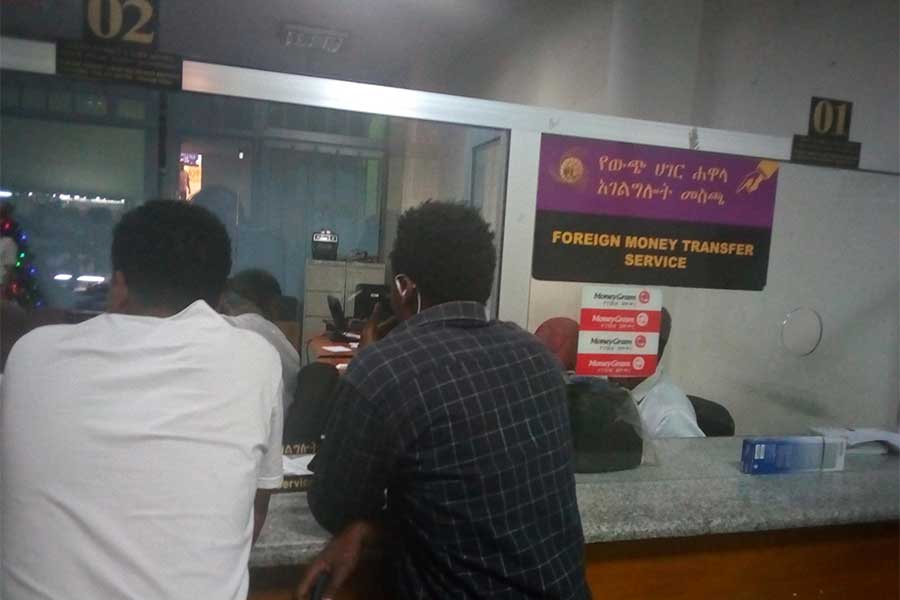
Agenda | Jan 11,2020
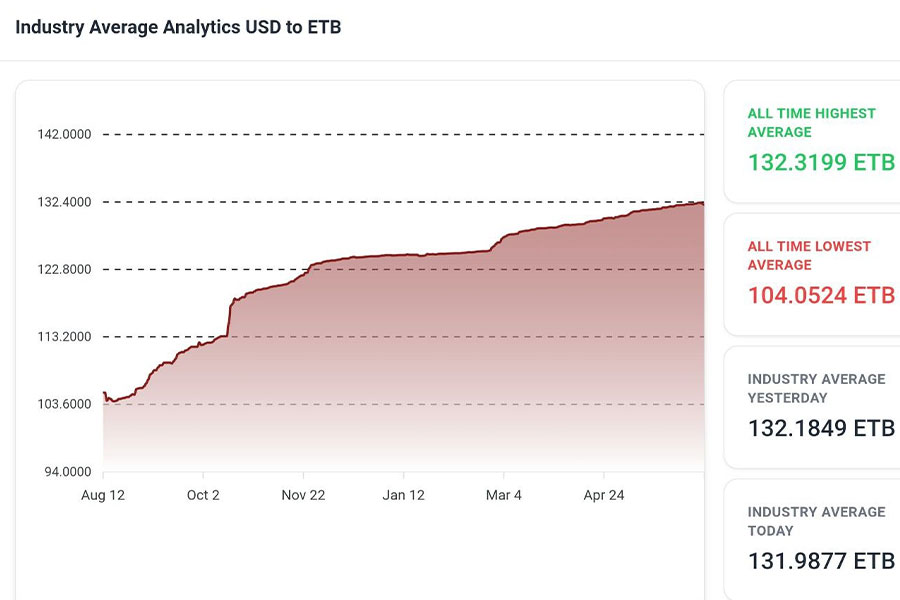
Money Market Watch | Jun 15,2025
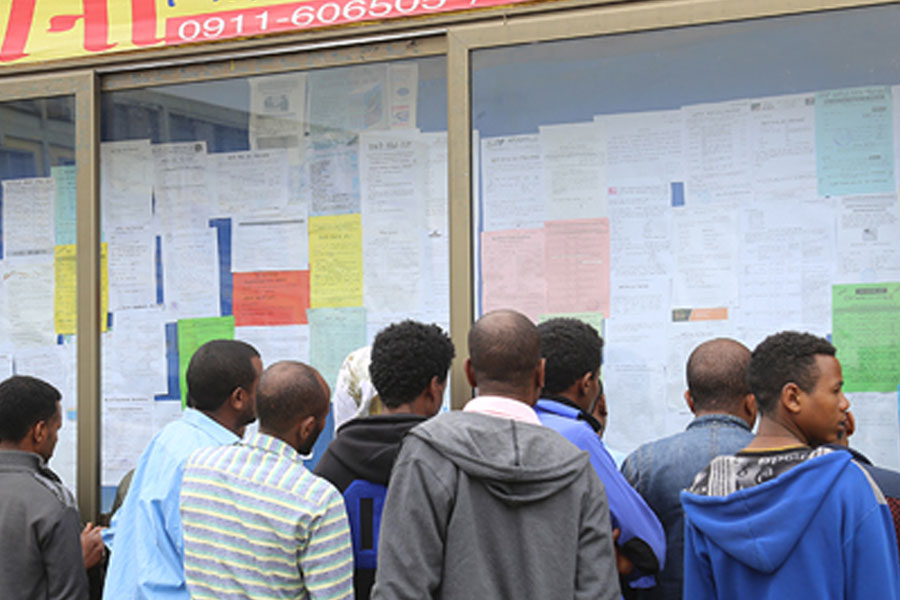
View From Arada | Apr 02,2022
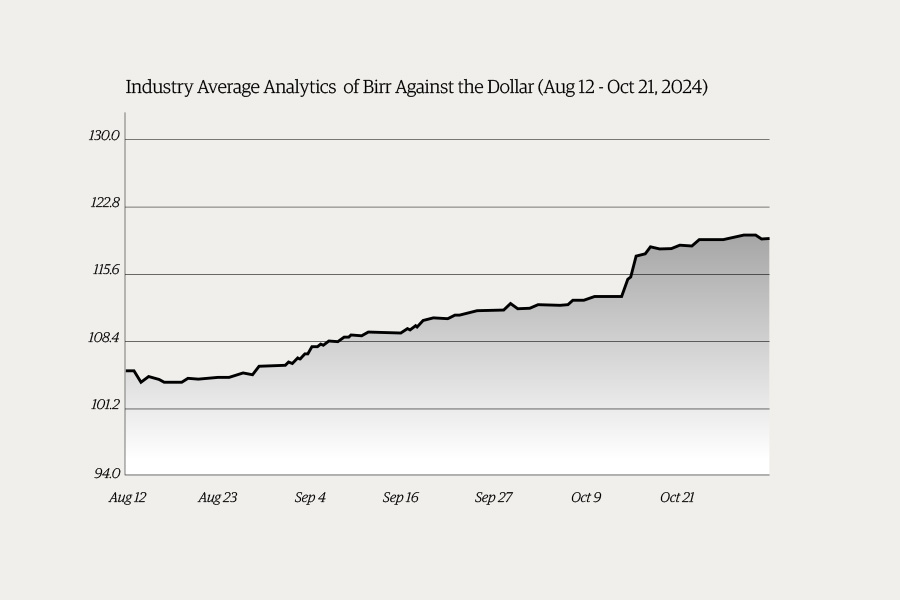
Money Market Watch | Nov 03,2024

Fortune News | Mar 14,2020
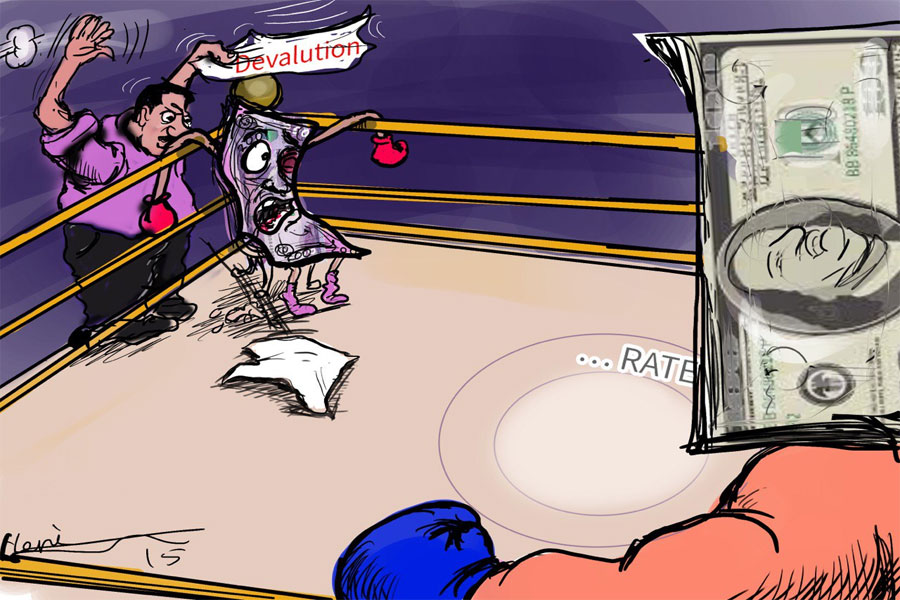
Editorial | Dec 17,2022

Fortune News | Oct 11,2020
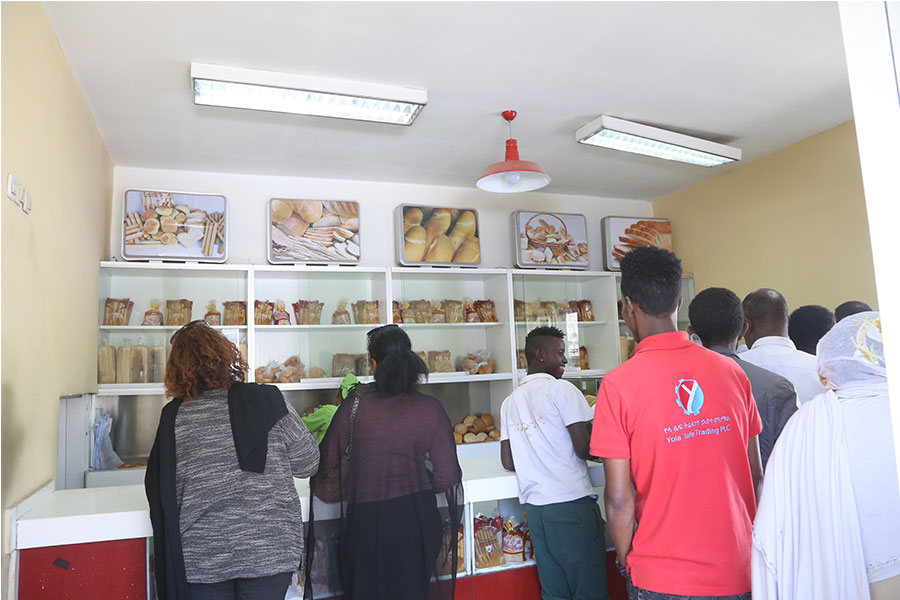
Agenda | Feb 09,2019

Radar | Aug 17,2019

Dec 22 , 2024 . By TIZITA SHEWAFERAW
Charged with transforming colossal state-owned enterprises into modern and competitiv...

Aug 18 , 2024 . By AKSAH ITALO
Although predictable Yonas Zerihun's job in the ride-hailing service is not immune to...

Jul 28 , 2024 . By TIZITA SHEWAFERAW
Unhabitual, perhaps too many, Samuel Gebreyohannes, 38, used to occasionally enjoy a couple of beers at breakfast. However, he recently swit...

Jul 13 , 2024 . By AKSAH ITALO
Investors who rely on tractors, trucks, and field vehicles for commuting, transporting commodities, and f...

Oct 18 , 2025
The political establishment, notably the ruling party and its top brass, has become p...

Oct 11 , 2025
Ladislas Farago, a roving Associated Press (AP) correspondent, arrived in Ethiopia in...

Oct 4 , 2025
Eyob Tekalegn (PhD) had been in the Governor's chair for only weeks when, on Septembe...

Sep 27 , 2025
Four years into an experiment with “shock therapy” in education, the national moo...